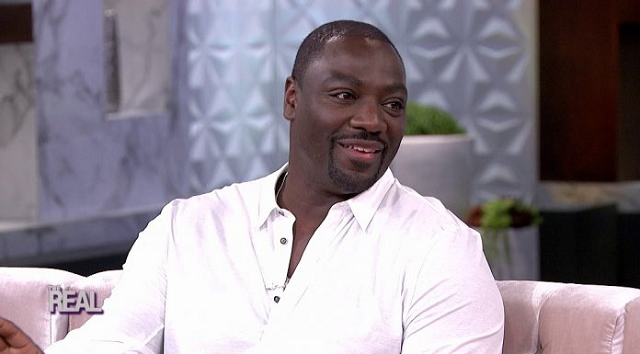British-Nigerian actor, Adewale Akinnuoye-Agbaje, in his autobiographical piece ‘Farming,’ bluntly tells the true story of his childhood as a young fostered Nigerian boy.
One movie that almost failed to gain spotlight last year at the 2018 Toronto International Film Festival (TIFF) for some obvious reason was ‘Farming’, the autobiographical piece by British-Nigerian actor, Adewale Akinnuoye-Agbaje.
No thanks to Genevieve Nnaji’s directorial debut Lionheart, which fortuitously was a mega-hit at the prestigious international film festival in Canada owing to its acquisition by American movie streaming giant, Netflix, as its first original film from Nollywood.
While “Farming” was picked up by Lionsgate UK in the Discovery Section of the Toronto International Film Festival where it premiered, it would later win the Michael Powell Award for Best British Feature Film at the 2019 Edinburgh International Film Festival in June.
Interestingly, however, Genevieve would star alongside Akinnuoye-Agbaje in the British drama which also marks his directorial debut. Finally, Lionsgate recently unveiled a poster and official UK trailer for Farming. This followed rave reviews of the movie.
Set to begin screening in select cinemas across the UK between 27 September and October 11, 2019, its US release would be on October 25 before showing in Nigeria cinemas. Driven by themes of identity, power, love and betrayal, and rich with compelling characters, the autobiographical portrayal by Akinnuoye-Agbaje, Farming is based on the true story of his childhood as a fostered Nigerian boy (Enitan) who falls in with a white skinhead gang while struggling to find his own identity in 1980s England.
That cryptic title ‘Farming’ refers to a policy, popular among Nigerian parents in 1960s and 1970s Britain, of “farming out” their newborn offspring to white foster parents for years at a time, paying strangers for full-time childcare while they concentrated on studies or careers.
And so the film opens with Femi (Akinnuoye-Agbaje playing his own father) and Tolu (Genevieve Nnaji playing his wife/mother) in tears handing over their infant son Enitan and a wad of banknotes to Ingrid Carpenter (Kate Beckinsale), a difficult and dubious working-class wife from a Gypsy background, living in a terraced house in Tilbury (the exact house in which Akinnuoye-Agbaje grew up).
The scene shows distraught Akinnuoye-Agbaje holding back tears as he explains why they are giving up their son. “Please take care of our son… until we finish our studies.”
The trailer’s following scenes show a young Enitan bonding with his new surrogate mom while coping with racism everywhere he showed up. In a scene, young Enitan tried washing off his skin colour after he was ridiculed for being too black by his adopted mum’s friends.
He went as far as painting himself white just to look and feel white. Scenes that followed saw Enitan being bullied into a young adult as well as being a target for a British gang, Tilbury Skins.
He suffered several humiliations but gradually falls deep into the bullish gang’s clique to become one of them. His foster mum, Kate Beckinsale tries to advise him from joining the racist gang that employs Enitan to bully and hurt blacks like him but he was past caring.
“You might have joined the Tilbury Skins’ beating your own kind thinking they love you!” Kate Beckinsale said. Enitan was later seen in the latter part of the trailer with his parents and siblings taking a family picture in Lagos Nigeria. The scene had Genevieve and Akinnuoye-Agbaje showing again in the trailer.
Akinnuoye-Agbaje began his career as a model in Milan. He graduated with a masters degree in Law from London’s prestigious Kings College, before moving to Los Angeles where he was bitten by the acting bug. Fluent in several languages, including English, Italian, Yoruba, and Swahili, he is best known for his roles in the movies Congo (1995) and The Mummy Returns (2001), and the HBO series Oz (1997).
“The only way I know how to deliver is to focus; I would start two hours before I went to the set and I wouldn’t say any other words other than the ones that I needed to say, that’s just the way I work and I think that intensity comes across in my characters.”
This remarkably remains one of his quotes and from his “method acting” style, which has sometimes allegedly caused resentment on sets.
Source: THISDAY











